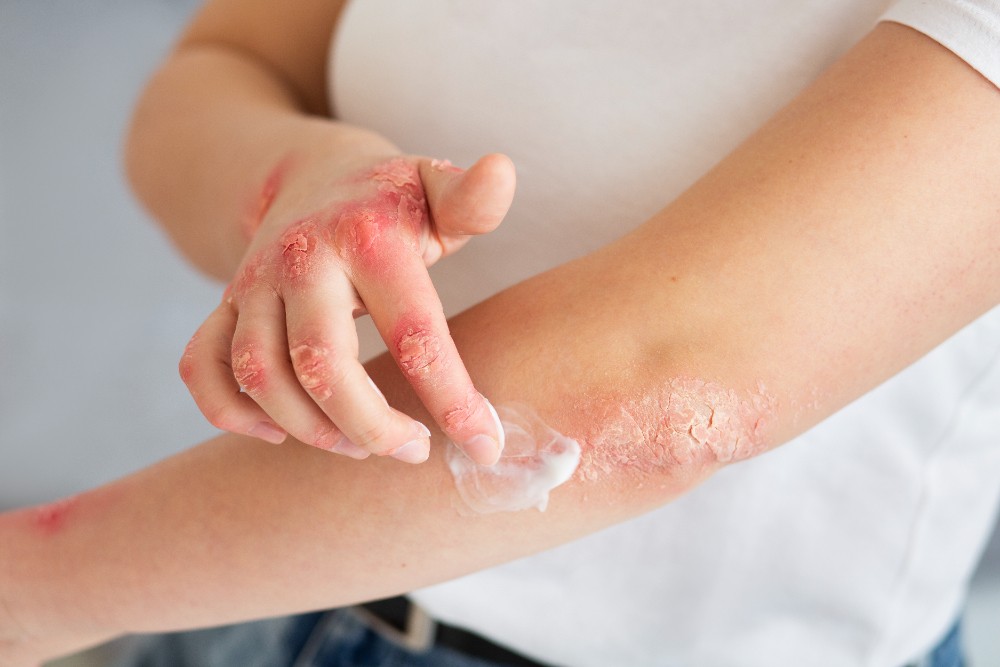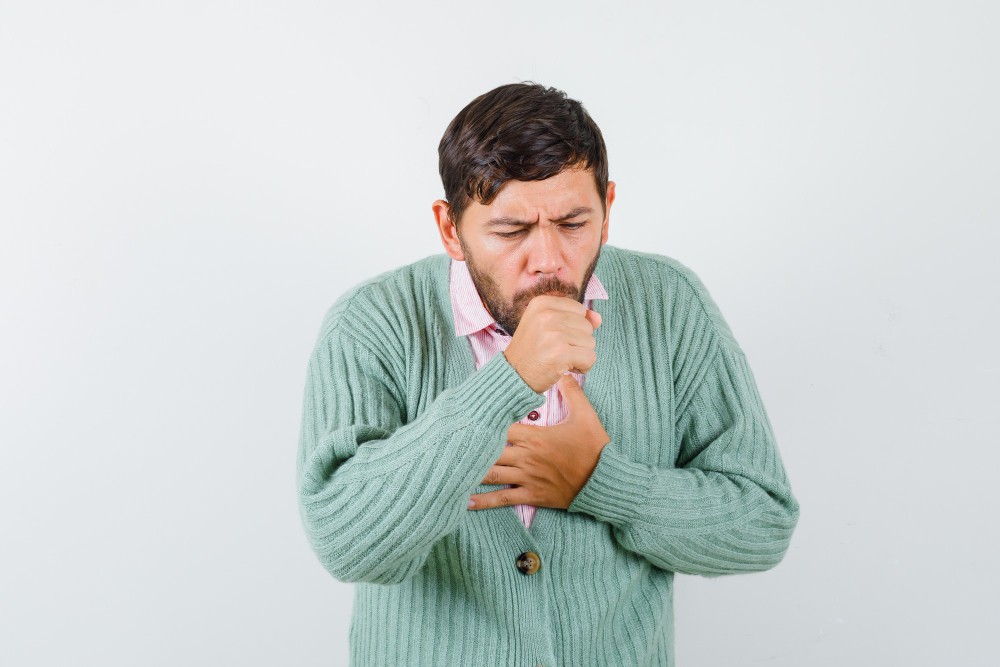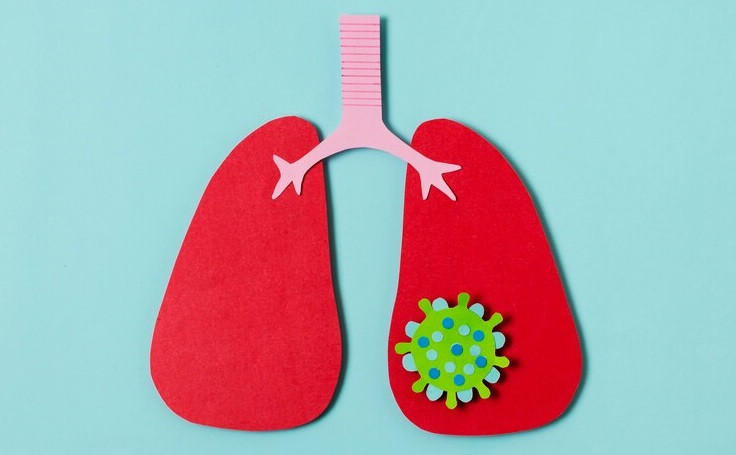Tuberculosis (TB) is an infectious disease caused by the bacteria Mycobacterium tuberculosis, which typically affects the lungs. However, TB can also impact the skin, leading to various symptoms such as rashes or lesions on different parts of the body. This article outlines the symptoms of skin tuberculosis and how to treat it effectively.
What is Skin Tuberculosis?
Skin tuberculosis occurs when the bacteria Mycobacterium tuberculosis, which causes TB, infect the skin. In individuals with tuberculosis, the bacteria can spread from the lungs to other parts of the body, including the skin, via the bloodstream or lymphatic system.
Skin tuberculosis can result from the spread of TB bacteria to the skin or from direct contact with infected bacteria through open cuts or wounds. Transmission may also occur through inhaling droplets from someone with active TB when they cough or sneeze.
Symptoms of Skin Tuberculosis
The symptoms of skin tuberculosis depend on the extent of the infection, the location of the lesions, and the overall health of the individual. Skin TB may present as plaques, ulcers, or abscesses. Below are the types and symptoms of skin tuberculosis:
Lupus Vulgaris
This progressive form of skin TB results in large, irregularly shaped, shiny, and brown lesions, typically on the face and ears. These lesions can develop into ulcers that predominantly affect the face and ears.
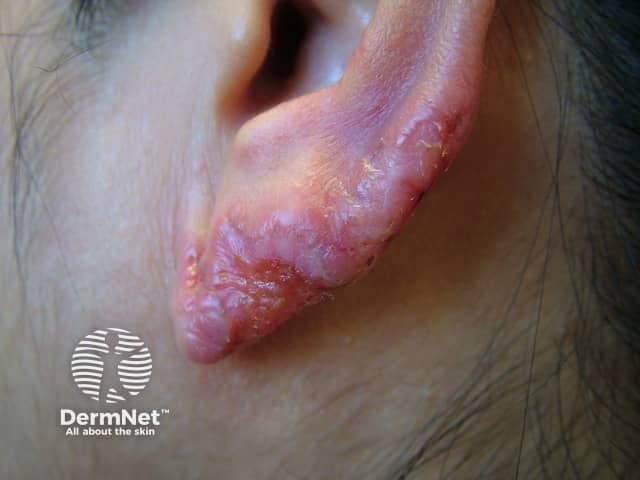
Scrofuloderma
The most common form of skin tuberculosis, scrofuloderma occurs when TB bacteria spread from infected lymph nodes to the skin.
It starts with painless nodules that grow, burst, and form abscesses, eventually developing into purple plaques that turn into scar tissue. This condition commonly affects the neck, abdomen, and groin.
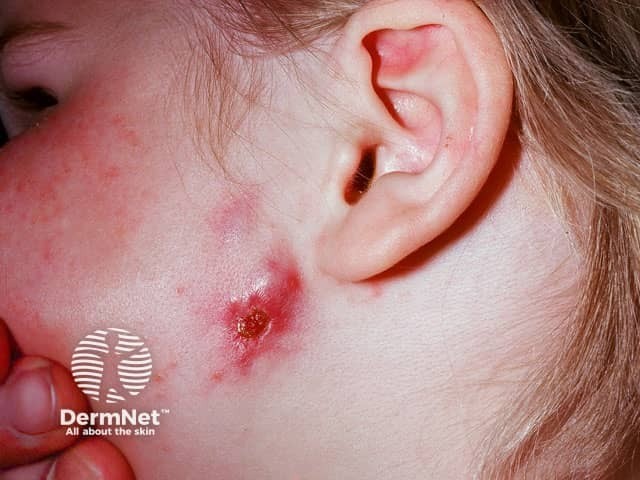
Tuberculosis Verrucosa Cutis
This form of TB is marked by large red plaques, often over 1 cm in diameter. The plaques develop white or light-colored growths and are usually found on the hands, fingers, and toes.
Tuberculosis Chancre
A rare manifestation of skin tuberculosis, tuberculosis chancre presents as small lumps that merge into discolored lesions on the face, arms, and legs. It can spread to the lymph nodes, causing inflammation.
Papulonecrotic Tuberculid
This type of skin TB involves large lesions appearing on the feet, legs, hands, arms, face, and buttocks, often accompanied by fever, fatigue, and energy loss. These lesions can turn into hardened crusts or scabs, leading to permanent scarring.
Tuberculosis cutis orificialis
This severe form involves large, irregular ulcers that can appear in the mouth, throat, genitals, or around the anus. In women, the infection may spread to the fallopian tubes and endometrium (lining of the uterus). Older adults are more likely to experience this condition.
Treatment for Skin Tuberculosis
Skin tuberculosis is treated with a combination of antibiotics. The treatment typically lasts for six months, with the highest doses given during the first two months. In more severe cases, additional treatments such as surgery or removal of lesions and lumps may be required.
If you have concerns about skin issues or suspect you have tuberculosis, it’s essential to consult a doctor. You can also use the consultation feature on the Ai Care app, available on both the App Store and Play Store.
Looking for more information about other diseases? Click here!
- dr Nadia Opmalina
Srakocic, S. (2023). What Is Skin Tuberculosis?. Available from: https://www.healthline.com/health/skin-tuberculosis
Gurarie, M. (2023). Symptoms of Skin Tuberculosis. Available from: https://www.verywellhealth.com/skin-tuberculosis-symptoms-6503094#toc-frequent-symptoms
Ngan, V. (2023). Cutaneous Tuberculosis. Available from: https://dermnetnz.org/topics/cutaneous-tuberculosis


